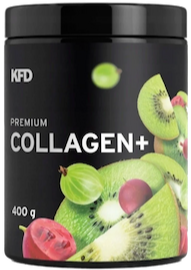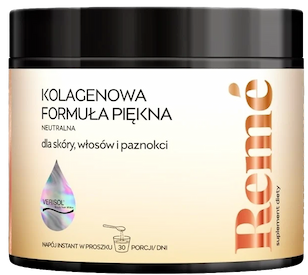Best hydrolysed collagen peptide supplements 2025 (fish and beef options)
Find out why you so often find hydrolysed collagen in dietary supplement formulations.


Learn more about our editorial process
.

Learn more about our editorial process
.

Learn more about our editorial process
.
Why you can trust us
Articles on Natu.Care are written based on scientific research, data from government websites and other reliable sources. The texts are written in cooperation with doctors, nutritionists and other health and beauty experts. Articles are reviewed before publication and during significant updates.
.Learn more about our editorial process
.Information about advertisements
Content on Natu.Care may contain links to products from the sale of which we may receive a commission. When creating content, we adhere to high editorial standards and take care to be objective about the products discussed. The presence of affiliate links is not dictated by our partners, and we select the products we review ourselves completely independently.
.Learn more about our terms and Conditions
.If you've ever checked the ingredients of collagen supplements, you've surely come across hydrolysed collagen. Is it another strange substitute? Or perhaps an unnecessary chemical?
.
Not one or the other. Hydrolysed collagen is a form of collagen protein and... the true king of supplements. It is the undisputed pioneer when it comes to absorption into the body and, therefore, the quick results of your treatment.
From this article you will learn:
- What is hydrolysed collagen and how it is formed.
- What is it?
- What sources it can be obtained from. .
- What makes it different from other forms of collagen. .
- What effects you can expect from supplementation. .
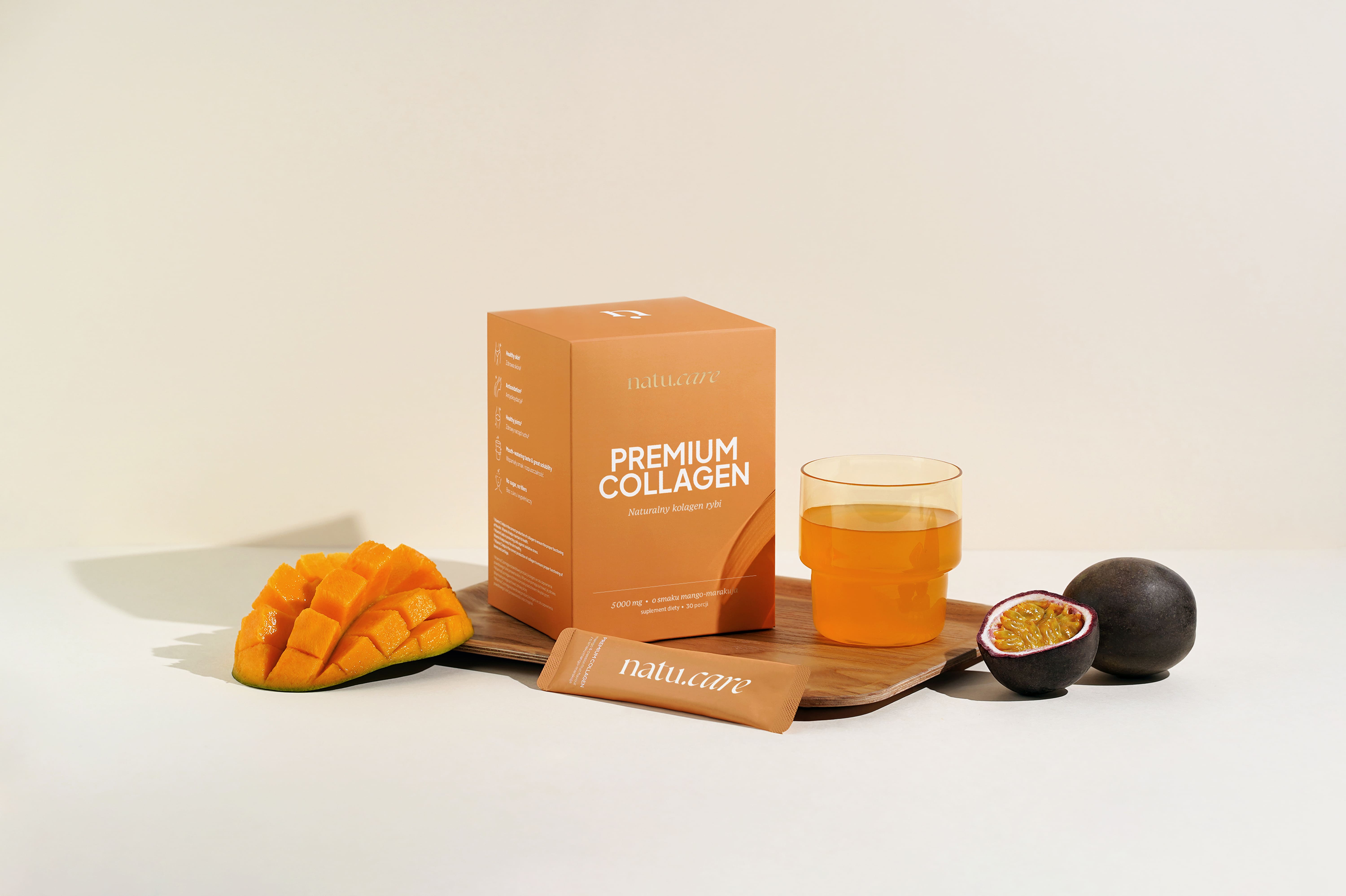
Sprawdź, za co pokochały go tysiące klientek Kolagen Premium 5000 mg, mango-marakuja
Natu.Care Kolagen Premium 5000 mg, mango-marakuja
Natu.Care Kolagen Premium dla zdrowia stawów, skóry, paznokci i włosów. Najlepsza przyswajalność. Optymalna dawka 5 000 lub 10 000 mg. Przebadany przez niezależne laboratorium.
Zobacz więcej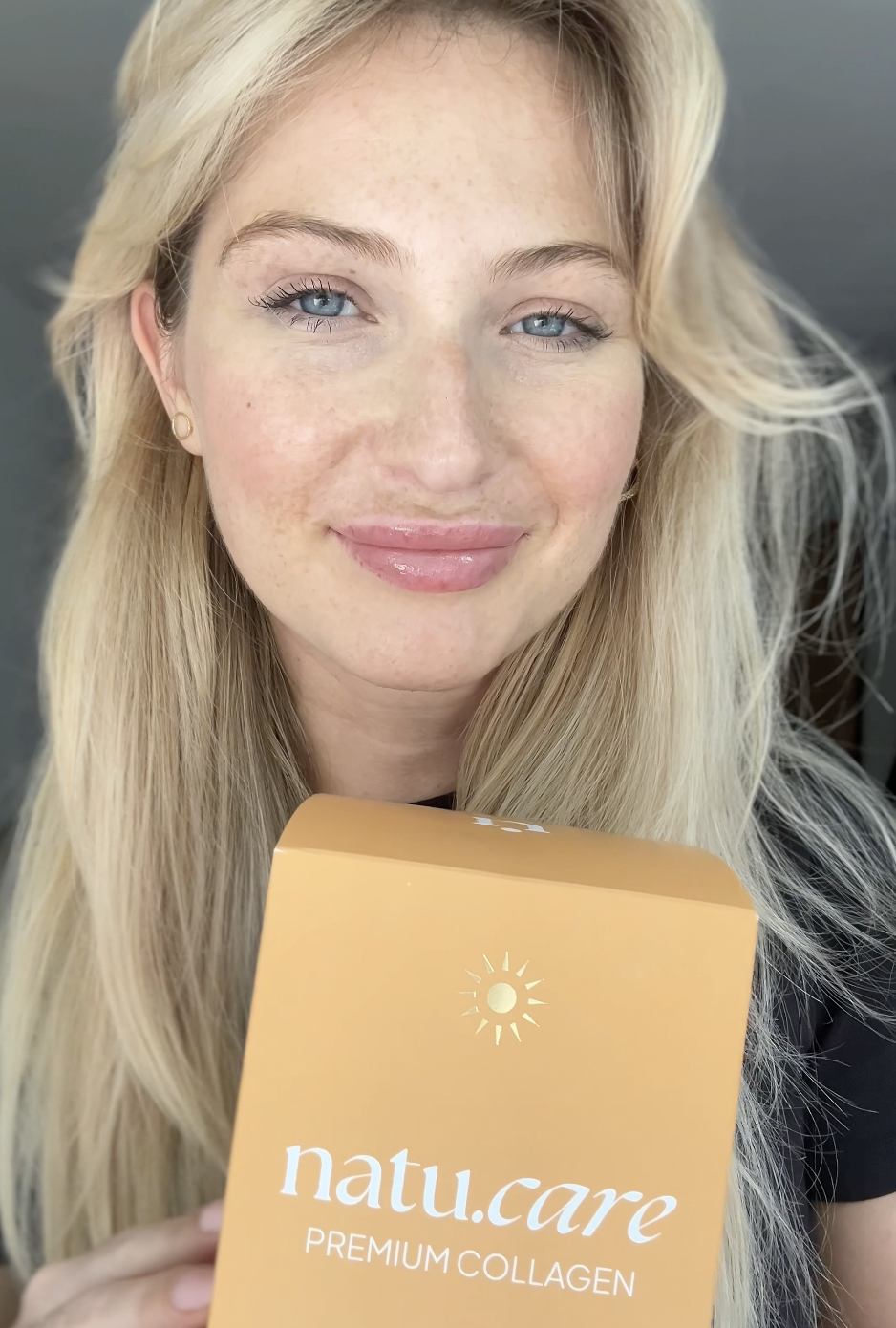
Wybrałam kolagen Natu.Care, ponieważ miał super opinie – a to było dla mnie bardzo ważne! Odkąd go stosuję, moja skóra znacznie się poprawiła i jest nawilżona, a na głowie pojawiły się nowe "baby hair".@Kasia S.
See also:
.
- The most powerful collagen on the market .
- The best collagen for wrinkles
- Best collagen for face
- Best collagen for skin
- Best collagen for acne
- Best collagen for scars
- Best collagen for cellulite
- Best collagen for stretch marks
- Best collagen for hair
- Best collagen for nails
- Best collagen for joints
- Best collagen for bones
What is hydrolysed collagen?
.
Hydrolysed collagen is collagen that has undergone a process of hydrolysis. Hydrolysis is the breaking down of collagen protein into smaller molecules under the influence of water and enzymes. This creates collagen peptides, which are more easily absorbed by our bodiesand.
Imagine that your intestines are like a sieve through which you are trying to sift something fine. Gravel is unlikely to get through the small mesh, but if you pour in sand, there's no problem.
See also:
Where is hydrolysed collagen sourced from?
.
Hydrolysed collagen is obtained from a variety of animals such as fish, cows, pigs and sometimes poultry and eggs. Most of this protein is found in skins, cartilage, tendons and bones and, in the case of fish, also in scales and bonesand.
Collagen is an animal protein, so any products labelled as 'vegan collagen' are substitutes containing plant-based amino acids. While these may have beneficial effects on the body, they will not provide all the effects that can be achieved with zoonotic collagen supplementation.
Why is hydrolysed collagen better than other forms of collagen?
.
Hydrolysed collagen is more effective because its smaller molecules are more easily absorbed by the body. Natural collagen requires more digestive enzymes to break down into collagen peptides, making it less effective compared to hydrolysateand.
Best supplements with hydrolysed collagen
.
Criteria for selection:
.
- Daily serving of hydrolysed collagen - we target products containing between 2.5 and 15 grams of collagen peptidesand. .
- Pure ingredients - no unnecessary fillers, colours or flavours. .
- Additional active ingredients - valuable minerals and vitamins are included.
- Proven performance - independent research and testing? We're a yes.
- Taste - it's important to take collagen with pleasure. Then it's easier to be regular. Here you can see the full criteria. .
Natu.Care Collagen Premium 5000 mg, mango-maracuja

- Collagen content: 5000 mg marine collagen hydrolysate
- .
- Additional active ingredients: vitamin C, low molecular weight hyaluronic acid (and L-theanine and coenzyme Q10 in cocoa flavoured collagen or vitamin A and vitamin E in mango–passion fruit flavoured collagen)
- .
- Form: powder sachets
- .
- Dose: 1 sachet per day
- .
- Sufficient for: 30 days
- .
Product description
Fish collagen from the Natu.Care brand in a dose of 5000 mg. The formula contains a sufficient portion of the active substance to positively affect your joints, musculoskeletal system and immunity.
Take care of your tendons, joint cartilage, ligaments, muscles and even bones by supplying them with the building blocks to function properly. Move without bólu and provide the necessary support for any physical activity.
And as a „gratis” to regular supplementation, you will also receive firm skinóhand, healthy and shiny hair and strong nails.
Natu.Care Premium Collagen is available in two flavours – Cacao Bloom and Rise&Shine. Both formulas are based on the following active ingredients: marine collagen hydrolysate, wild roseóbud extract and hyaluronic acid.
Additionally, Cacao Bloom contains natural L-theanine, coenzyme Q10 and defatted Dutch cacao. Rise&Shine instead contains vitamin E and vitamin A.
These are the best collagens in the world.
These best fish collagens on the market also rós taste – Cacao Bloom is a treat for chocolate lovers. Rise&Shine will appeal to those whoóenjoy the refreshing taste of mangoófruit and passion fruit.
Pros and cons
Fish collagen from the Natu.Care brand in a dose of 5000 mg. The formula contains a sufficient portion of the active substance to positively affect your joints, musculoskeletal system and immunity.
Take care of your tendons, joint cartilage, ligaments, muscles and even bones by supplying them with the building blocks to function properly. Move without bólu and provide the necessary support for any physical activity.
And as a „gratis” to regular supplementation, you will also receive firm skinóhand, healthy and shiny hair and strong nails.
Natu.Care Premium Collagen is available in two flavours – Cacao Bloom and Rise&Shine. Both formulas are based on the following active ingredients: marine collagen hydrolysate, wild roseóbud extract and hyaluronic acid.
Additionally, Cacao Bloom contains natural L-theanine, coenzyme Q10 and defatted Dutch cacao. Rise&Shine instead contains vitamin E and vitamin A.
These are the best collagens in the world.
These best fish collagens on the market also rós taste – Cacao Bloom is a treat for chocolate lovers. Rise&Shine will appeal to those whoóenjoy the refreshing taste of mangoófruit and passion fruit.
Additional information
Fish collagen from the Natu.Care brand in a dose of 5000 mg. The formula contains a sufficient portion of the active substance to positively affect your joints, musculoskeletal system and immunity.
Take care of your tendons, joint cartilage, ligaments, muscles and even bones by supplying them with the building blocks to function properly. Move without bólu and provide the necessary support for any physical activity.
And as a „gratis” to regular supplementation, you will also receive firm skinóhand, healthy and shiny hair and strong nails.
Natu.Care Premium Collagen is available in two flavours – Cacao Bloom and Rise&Shine. Both formulas are based on the following active ingredients: marine collagen hydrolysate, wild roseóbud extract and hyaluronic acid.
Additionally, Cacao Bloom contains natural L-theanine, coenzyme Q10 and defatted Dutch cacao. Rise&Shine instead contains vitamin E and vitamin A.
These are the best collagens in the world.
These best fish collagens on the market also rós taste – Cacao Bloom is a treat for chocolate lovers. Rise&Shine will appeal to those whoóenjoy the refreshing taste of mangoófruit and passion fruit.
User review
Fish collagen from the Natu.Care brand in a dose of 5000 mg. The formula contains a sufficient portion of the active substance to positively affect your joints, musculoskeletal system and immunity.
Take care of your tendons, joint cartilage, ligaments, muscles and even bones by supplying them with the building blocks to function properly. Move without bólu and provide the necessary support for any physical activity.
And as a „gratis” to regular supplementation, you will also receive firm skinóhand, healthy and shiny hair and strong nails.
Natu.Care Premium Collagen is available in two flavours – Cacao Bloom and Rise&Shine. Both formulas are based on the following active ingredients: marine collagen hydrolysate, wild roseóbud extract and hyaluronic acid.
Additionally, Cacao Bloom contains natural L-theanine, coenzyme Q10 and defatted Dutch cacao. Rise&Shine instead contains vitamin E and vitamin A.
These are the best collagens in the world.
These best fish collagens on the market also rós taste – Cacao Bloom is a treat for chocolate lovers. Rise&Shine will appeal to those whoóenjoy the refreshing taste of mangoófruit and passion fruit.
Natu.Care Collagen Premium 10000 mg, cherry

- Collagen content: 10,000 mg of hydrolyzed bovine collagen
- Additional active ingredients: vitamin C, low molecular weight hyaluronic acid, glucosamine, chondroitin, extract of Indian frankincense resin (boswellia serrata)
- Form: powder sachets for drinking
- Serving: 1 sachet per day
- Lasts for: 30 days
Product description
One of the strongest collagens on the market, providing as much as 10,000 mg per daily serving. This product can effectively support the condition of joints, skin, hair, and nails.
With this supplement, you will support your skeletal and joint system as well as your beauty, helping you visually halt the aging process and feel rejuvenated!
Pros and cons
Pros:
- The daily portion of collagen is very large – as much as 10,000 mg.
- Proven collagen formula – COLLinstant, whose effectiveness has been confirmed in clinical studies.
- Effective dose of hyaluronic acid, which additionally moisturizes the skin and positively affects joint health.
- Vitamin C supports the body's natural collagen production.
- Glucosamine is a fundamental building block of compounds found in joint cartilage and a component of collagen that gives elasticity to connective tissue in tendons.
- Chondroitin is a natural component found in the human body, mainly in cartilage. This large molecule (mucopolysaccharide) has the ability to absorb water, which helps maintain the elasticity and resilience of cartilage.
- Frankincense resin extract supports blood circulation and joint mobility and reduces their stiffness. It may help alleviate inflammatory conditions.
- The composition has been tested by the independent and accredited J.S. Hamilton laboratory.
Cons:
- None.
Additional information
Users praise Natu.Care Collagen Premium for the easy dissolving of the powder.
ALLDEYNN Collarose Fish
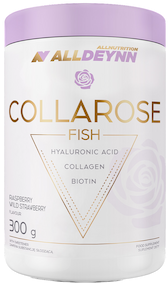
- Collagen content: 5000 mg hydrolysate fish collagen VERISOL F® .
- Additional active ingredients: vitamin C, hyaluronic acid, biotin
- Form: powder to dissolve in water .
- Dose: one scoop (6 g) of powder daily .
- Sufficient for: 50 days .
Product description
Atlantic cod collagen VERISOL F® contained in the formula are easily absorbed collagen peptides of fish origin. Regular supplementation can firm your skinóhand and slow down the ageing process. Your nails will become stronger and stop breaking. The addition of biotin will improve the condition of your hairów. The collagen portion is high enough to also have a good effect on your joints, muscles and bones.
Pros and cons
Atlantic cod collagen VERISOL F® contained in the formula are easily absorbed collagen peptides of fish origin. Regular supplementation can firm your skinóhand and slow down the ageing process. Your nails will become stronger and stop breaking. The addition of biotin will improve the condition of your hairów. The collagen portion is high enough to also have a good effect on your joints, muscles and bones.
Additional information
Atlantic cod collagen VERISOL F® contained in the formula are easily absorbed collagen peptides of fish origin. Regular supplementation can firm your skinóhand and slow down the ageing process. Your nails will become stronger and stop breaking. The addition of biotin will improve the condition of your hairów. The collagen portion is high enough to also have a good effect on your joints, muscles and bones.
Expert and user opinion
Atlantic cod collagen VERISOL F® contained in the formula are easily absorbed collagen peptides of fish origin. Regular supplementation can firm your skinóhand and slow down the ageing process. Your nails will become stronger and stop breaking. The addition of biotin will improve the condition of your hairów. The collagen portion is high enough to also have a good effect on your joints, muscles and bones.
DuoLife Collagen fish collagen 2500 mg
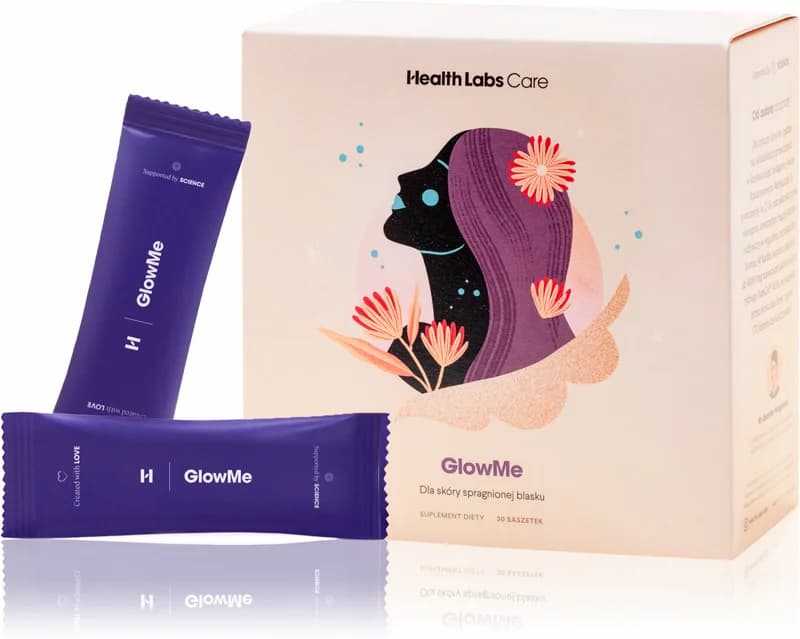
- Collagen content: 2500 mg collagen
- Additional active ingredients: vitamin C, silicon, glucosamine, hyaluronic acid, nettle and bamboo extracts
- Form: liquid to drink .
- Dose:25 ml .
- Sufficient for: 30 days .
Product description
100% natural collagen liquid without unnecessary ingredientsós. The composition of ingredientsós improves the appearance and condition of skinóry, hairów, nails. DuoLife is a good choiceór if you notice the first signs of skinóry ageing or want to stop this process. A tasty liquid, convenient to use.
Pros and cons
100% natural collagen liquid without unnecessary ingredientsós. The composition of ingredientsós improves the appearance and condition of skinóry, hairów, nails. DuoLife is a good choiceór if you notice the first signs of skinóry ageing or want to stop this process. A tasty liquid, convenient to use.
Additional information
100% natural collagen liquid without unnecessary ingredientsós. The composition of ingredientsós improves the appearance and condition of skinóry, hairów, nails. DuoLife is a good choiceór if you notice the first signs of skinóry ageing or want to stop this process. A tasty liquid, convenient to use.
User review
100% natural collagen liquid without unnecessary ingredientsós. The composition of ingredientsós improves the appearance and condition of skinóry, hairów, nails. DuoLife is a good choiceór if you notice the first signs of skinóry ageing or want to stop this process. A tasty liquid, convenient to use.
Pharmovit liquid collagen 10000 mg
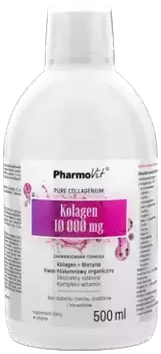
- Collagen content: 10000 mg hydrolysed bovine collagen types I and III .
- Additional active ingredients: hyaluronic acid, natural plant extracts, vitamin C, B vitamins, zinc, vitamin D
- Form: vials .
- Dose: 25 ml .
- Sufficient for: 20 days .
Product description
A solid daily dose of collagen for jointómuscle and bone health and beauty. The duo of collagen and vitamin C has a positive effect on each other, so that „the protein of youth” is better absorbed and more efficiently produced in the body.
Pros and cons
A solid daily dose of collagen for jointómuscle and bone health and beauty. The duo of collagen and vitamin C has a positive effect on each other, so that „the protein of youth” is better absorbed and more efficiently produced in the body.
Additional information
A solid daily dose of collagen for jointómuscle and bone health and beauty. The duo of collagen and vitamin C has a positive effect on each other, so that „the protein of youth” is better absorbed and more efficiently produced in the body.
KFD Premium Collagen+
Product description
High dose of collagen and a real bomb of vitamins C and D and organic sulphur. With this preparation the effects will come immediately. You will improve the firmness of your skin and reduce wrinkles. Your hair and nails will be strong and shiny.
A generous dose of collagen will improve the mobility of your jointsós, benefit your bone system and muscles. Do you do sports and need a product thatós able to keep up with your needs? This product will do the trick.
Pros and cons
High dose of collagen and a real bomb of vitamins C and D and organic sulphur. With this preparation the effects will come immediately. You will improve the firmness of your skin and reduce wrinkles. Your hair and nails will be strong and shiny.
A generous dose of collagen will improve the mobility of your jointsós, benefit your bone system and muscles. Do you do sports and need a product thatós able to keep up with your needs? This product will do the trick.
Additional information
High dose of collagen and a real bomb of vitamins C and D and organic sulphur. With this preparation the effects will come immediately. You will improve the firmness of your skin and reduce wrinkles. Your hair and nails will be strong and shiny.
A generous dose of collagen will improve the mobility of your jointsós, benefit your bone system and muscles. Do you do sports and need a product thatós able to keep up with your needs? This product will do the trick.
Expert opinion
High dose of collagen and a real bomb of vitamins C and D and organic sulphur. With this preparation the effects will come immediately. You will improve the firmness of your skin and reduce wrinkles. Your hair and nails will be strong and shiny.
A generous dose of collagen will improve the mobility of your jointsós, benefit your bone system and muscles. Do you do sports and need a product thatós able to keep up with your needs? This product will do the trick.
Product description
The dietary supplement from Remé contains beef collagen in a patented formula and vitamin C, whichóra aids its absorption. The formula comes in three flavours: neutral, orange-maracuja and strawberry-pomegranate. The formula can effectively support and improve the condition of the skinóry, hairóry and nails.
Pros and cons
The dietary supplement from Remé contains beef collagen in a patented formula and vitamin C, whichóra aids its absorption. The formula comes in three flavours: neutral, orange-maracuja and strawberry-pomegranate. The formula can effectively support and improve the condition of the skinóry, hairóry and nails.
Additional information
The dietary supplement from Remé contains beef collagen in a patented formula and vitamin C, whichóra aids its absorption. The formula comes in three flavours: neutral, orange-maracuja and strawberry-pomegranate. The formula can effectively support and improve the condition of the skinóry, hairóry and nails.
The dietary supplement from Remé contains beef collagen in a patented formula and vitamin C, whichóra aids its absorption. The formula comes in three flavours: neutral, orange-maracuja and strawberry-pomegranate. The formula can effectively support and improve the condition of the skinóry, hairóry and nails.
{ product:1eiyihgASLfslgpBv80Tk1 }}
{ product:5fckersx4K9mJxAxV0rRJO }}
See also:
.
- Drinking collagen .
- Collagen powder
- Collagen in sachets
- Liquid collagen
- Collagen in tablets
- Collagen in capsules
- How to choose collagen
Hydrolysed collagen versus other forms of collagen
.
Hydrolysed collagen differs from regular collagen primarily in particle size. In hydrolysate, the long protein chain of collagen is broken down into smaller fragments called peptides, whereas in regular collagen this chain remains intactand.
Hydrolysed collagen has a lower molecular weight and dissolves better in water, making it more bioavailable and effective compared to regular collagen .
Hydrolysed collagen versus hydrate
.
Collagen hydrate is collagen that has been hydrated. Hydration affects the elasticity of collagen fibres. During this process, water molecules attach to the amino acid chain, but unlike hydrolysis - the protein does not break down into smaller moleculesand. Collagen hydrate, however, is mainly used in research studies where it is treated as a skin substitute.
Hydrolysed collagen versus lyophilisate
.
Liophilisate is obtained by freezing collagen and evaporating the water from it. Liophilised collagen is more concentrated, but the bioavailability of the main ingredient is just as important. Hydrolysate, by breaking down collagen into small peptides, digests much more easily and penetrates the body betterand.
Hydrolysed collagen versus gelatine
.
Gelatin is a collagen protein dissolved in hot water. However, the collagen molecules in it are still quite large, which can make it difficult to digest. Hydrolysed collagen, on the other hand, has smaller molecules, making it more easily absorbed by the bodyand.
Which hydrolysed collagen is best?
.
Research clearly indicates that hydrolysed collagen derived from fish (i.e. sea collagen) most closely resembles human collagen molecules. This allows your body to assimilate it more efficiently.
Using dietary supplements containing marine collagen may yield better results than consuming preparations derived from livestock meat. It is also an attractive option for pescatarians, those who are vegetarians but include fish in their diet.
Effects of hydrolysed collagen supplementation
.
Hydrolysed collagen, or fragmented collagen protein, is the best absorbed form of this substance. By taking it, you can achieve more visible and noticeable effects from supplementation.
Collagen for beauty
.
The protein of youth plays an important role in maintaining the condition of the skin. It is responsible for the firmness and elasticity of the skin, being its main component (70-80%). In addition, it aids the wound healing process. Collagen fills in tissues, leading to a reduction in the appearance of wrinkles and improved skin firmnessand.
Collagen supplementation has a positive effect on the condition of the skin throughout the body, giving it greater elasticity and tone. Therefore, hydrolysed collagen can also be helpful in the fight against cellulite and fresh stretch marksand.
Hydrolysed collagen also works on the scalp, which is key to improving the condition of hair. A healthy and moisturised scalp is like the soil in which hair follicles find the essential nutrients they need for proper growth.
Hair and nails are mainly made up of keratin, which is made up of amino acids. Glycine, also present in collagen, is one of these amino acids. Therefore, hydrolysed collagen supplements can improve the condition of your hair and strengthen your nailsand.
See also:
.
Collagen for health
.
The properties of collagen mean that it plays an important role in joint cartilage and is essential for the production of joint lubricant. If the body does not produce enough synovium, cartilage begins to wear down, often leading to pain and discomfort when moving.
Supplementation with hydrolysed collagen promotes the production of joint synovium, which increases movement comfort. It may also prevent osteoarthritisand.
Research suggests that taking collagen peptides in combination with calcium and vitamin D has a positive effect on bone density. This is particularly relevant for women during and after the menopauseand.
Supplementation with hydrolysed collagen indirectly helps build muscle mass in athletes and, in older age, together with appropriate exercise, can prevent loss of muscle mass .
.
Using hydrolysed collagen can help maintain a healthy musculoskeletal system and keep you fit and pain-free for many years.
See also:
- What is fish collagen .
- What is bovine collagen
- What is type I collagen
- What is type II collagen
- What is type III collagen

Sprawdź, za co pokochały go tysiące klientek Kolagen Premium 5000 mg, mango-marakuja
Natu.Care Kolagen Premium 5000 mg, mango-marakuja
Natu.Care Kolagen Premium dla zdrowia stawów, skóry, paznokci i włosów. Najlepsza przyswajalność. Optymalna dawka 5 000 lub 10 000 mg. Przebadany przez niezależne laboratorium.
Zobacz więcej
Wybrałam kolagen Natu.Care, ponieważ miał super opinie – a to było dla mnie bardzo ważne! Odkąd go stosuję, moja skóra znacznie się poprawiła i jest nawilżona, a na głowie pojawiły się nowe "baby hair".@Kasia S.
Who should supplement with hydrolysed collagen?
.
Hydrolysed collagen is a substance that has been thoroughly tested and is safe for supplementation. Take it if you want to:
- .
- keep your youthfulness for longer, .
- reduce the appearance of wrinkles, .
- improve skin density and firmness, .
- maintain healthy joints, .
- reduce the risk of osteoporosis, .
- improve the condition of nails and thicken hair, .
Preparations containing hydrolysed collagen will provide you with the fastest supplementation effects. In addition, if you suffer from digestive or absorption disorders (e.g. intestinal disease), it may be difficult for your body to properly digest natural collagen, meaning the protein will not be assimilated. In such cases, hydrolysed collagen is the solution.
Contraindications to hydrolysed collagen supplementation
.
Most hydrolysed collagen products on the market are safe and (thanks to the hydrolysis process) hypoallergenic. However, there are a few contraindications that you should be aware of before starting supplementationand.
Particularly those who are allergic to products from which collagen is derived (e.g. fish) should exercise caution. Collagen supplementation is not recommended for pregnant and lactating women, or for people:
.
- .
- with kidney and liver disease, .
- who are taking medication, .
- suffering from autoimmune disorders, certain skin diseases and gastrointestinal problems.
- .
It is worth remembering that collagen supplements often also contain other active substances that can complicate life for allergy sufferers or those taking medication. Therefore, if you have any doubts about supplementation, consult your doctor.
See also:
- Which collagen is best? .
- What are the symptoms of collagen deficiency? .
- How to replenish collagen in the body?
- Can collagen be restored?
- What destroys collagen in the body?
- When to drink collagen? .
- What does collagen help? .
Summary
.
- Hydrolysed collagen is a form of collagen obtained by hydrolysis, which is the breaking down of collagen protein into smaller molecules.
- Hydrolysed collagen is a form of collagen obtained by hydrolysis.
- Hydrolysed collagen is more easily digested and absorbed into the body, making supplementation more effective.
- Hydrolysed collagen is the best form of collagen.
- Hydrolysed collagen extracted from fish is the best. .
- Supplements with hydrolysed collagen will help keep skin looking young, hair and nails in good condition and joints healthy.
FAQ
.When do we start to lose collagen?
.Collagen begins to be lost as we age - usually from around 25 years of age. After this time, the body's production of collagen decreases, with collagen levels dropping by 1.5% each year.
How much collagen to take daily for your joints?
.Research suggests that the daily dose of collagen that delivers results is between 2.5 and 15 grams. If you want to support your joints, we recommend supplements containing 5-10 grams of collagen per daily serving, such as Natu.Care Premium Collagen.
What is hydrolysis?
.Hydrolysis is a chemical process in which collagen is broken down into smaller molecules using water and enzymes. This process results in the formation of collagen peptides, which are easily absorbed by our body.
Is drinking collagen safe?
.Drinking collagen is generally considered safe. However, it is always advisable to read the manufacturer's recommendations for a particular product. If you have any health problems, consult your doctor before starting supplementation.
What are the symptoms of collagen deficiency?
Symptoms of a lack of collagen can include the appearance of wrinkles, loss of skin elasticity and the characteristic popping in joints and reduced joint mobility. Less obvious symptoms also include brittle nails, weakened hair and problems with wound healing.
What to look out for when buying collagen.
When buying collagen, it is worth looking at the daily serving of collagen - it should be between 2.5 and 15 grams. It is best to choose products with hydrolysed collagen of fish origin. Such a dietary supplement will be well absorbed by the body and strong enough to provide you with quick treatment results.
Which collagen is better: hydrolysed or not?
.It is accepted that, in most cases, hydrolysed collagen is the better choice because it has better bioavailability. This means that it is more easily digested and absorbed into the body. The exception to this is people with inflammatory joint disease, for whom native collagen is recommended.
.
Sources
.See all
."7 Final Report on the Safety Assessment of Hydrolyzed Collagen". Journal of the American College of Toxicology 4, no. 5 (September 1, 1985): 199–221.https://doi.org/10.3109/10915818509078691.
Argyrou, Chrysoula, Efthymia Karlafti, Kalliopi Lampropoulou-Adamidou, Simeon Tournis, Konstantinos Makris, George Trovas, Ismene Dontas, and Ioannis K. Triantafyllopoulos. "Effect of Calcium and Vitamin D Supplementation with and without Collagen Peptides on Bone Turnover in Postmenopausal Women with Osteopenia". Journal of Musculoskeletal & Neuronal Interactions 20, no. 1 (2020): 12. https://www.ncbi.nlm.nih.gov/pmc/articles/PMC7104583/
Asserin, Jérome, Elian Lati, Toshiaki Shioya, and Janne Prawitt. "The Effect of Oral Collagen Peptide Supplementation on Skin Moisture and the Dermal Collagen Network: Evidence from an Ex Vivo Model and Randomized, Placebo-Controlled Clinical Trials." Journal of Cosmetic Dermatology 14, no. 4 (2015): 291-301.https://doi.org/10.1111/jocd.12174.
Bello, Alfonso E., and Steffen Oesser. "Collagen hydrolysate for the treatment of osteoarthritis and other joint disorders:a review of the literature". Current Medical Research and Opinion 22, no. 11 (November 1, 2006): 2221–32.https://doi.org/10.1185/030079906X148373.
'Bovine Collagen vs Marine Collagen'. Accessed February 23, 2023.https://www.justvitamins.co.uk/blog/bovine-collagen-vs-marine-collagen/.
Clark, Kristine L., Wayne Sebastianelli, Klaus R. Flechsenhar, Douglas F. Aukermann, Felix Meza, Roberta L. Millard, John R. Deitch, Paul S. Sherbondy, and Ann Albert. "24-Week Study on the Use of Collagen Hydrolysate as a Dietary Supplement in Athletes with Activity-Related Joint Pain." Current Medical Research and Opinion 24, no. 5 (May 2008): 1485–96.https://doi.org/10.1185/030079908x291967.
Clifford, Tom, Matthew Ventress, Dean M. Allerton, Sarah Stansfield, Jonathan C. Y. Tang, William D. Fraser, Barbara Vanhoecke, Janne Prawitt, and Emma Stevenson. "The Effects of Collagen Peptides on Muscle Damage, Inflammation and Bone Turnover Following Exercise: A Randomized, Controlled Trial." Amino Acids 51, no. 4 (April 2019): 691–704.https://doi.org/10.1007/s00726-019-02706-5.
Figueres Juher, Teresa, and Esther Basés Pérez. "[An overview of the beneficial effects of hydrolysed collagen intake on joint and bone health and on skin ageing]."Nutricion Hospitalaria 32 Suppl 1 (18 July 2015): 62–66.https://doi.org/10.3305/nh.2015.32.sup1.9482.
Garnero, Patrick. "The Role of Collagen Organization on the Properties of Bone." Calcified Tissue International 97, no. 3 (September 2015): 229–40.https://doi.org/10.1007/s00223-015-9996-2.
Hexsel, Doris, Vivian Zague, Michael Schunck, Carolina Siega, Fernanda O. Camozzato, and Steffen Oesser. "Oral Supplementation with Specific Bioactive Collagen Peptides Improves Nail Growth and Reduces Symptoms of Brittle Nails." Journal of Cosmetic Dermatology 16, no. 4 (December 2017): 520-26.https://doi.org/10.1111/jocd.12393.
Holwerda, Andrew M, and Luc J C van Loon. "The impact of collagen protein ingestion on musculoskeletal connective tissue remodelling: a narrative review". Nutrition Reviews 80, no. 6 (1 June 2022): 1497-1514.https://doi.org/10.1093/nutrit/nuab083.
Inoue, Naoki, Fumihito Sugihara, and Xuemin Wang. "Ingestion of Bioactive Collagen Hydrolysates Enhance Facial Skin Moisture and Elasticity and Reduce Facial Ageing Signs in a Randomised Double-Blind Placebo-Controlled Clinical Study." Journal of the Science of Food and Agriculture 96, no. 12 (September 2016): 4077-81.https://doi.org/10.1002/jsfa.7606.
Khatri, Mishti, Robert J. Naughton, Tom Clifford, Liam D. Harper, and Liam Corr. "The Effects of Collagen Peptide Supplementation on Body Composition, Collagen Synthesis, and Recovery from Joint Injury and Exercise: A Systematic Review". Amino Acids 53, no. 10 (October 2021): 1493–1506.https://doi.org/10.1007/s00726-021-03072-x.
Kilinc, Bekir Eray, Yunus Oc, Gungor Alibakan, Emre Bilgin, Muharrem Kanar, and Osman Tugrul Eren. "An Observational 1-Month Trial on the Efficacy and Safety of Promerim for Improving Knee Joint". Clinical Medicine Insights. Arthritis and Musculoskeletal Disorders 11 (2018).https://doi.org/10.1177/1179544118757496.
León-López, Arely, Alejandro Morales-Peñaloza, Víctor Manuel Martínez-Juárez, Apolonio Vargas-Torres, Dimitrios I. Zeugolis, and Gabriel Aguirre-Álvarez. "Hydrolyzed Collagen-Sources and Applications." Molecules 24, no. 22 (January 2019): 4031.https://doi.org/10.3390/molecules24224031.
'Hydrolyzed Collagen-Sources and Applications. Molecules 24, no. 22 (November 7, 2019): 4031.https://doi.org/10.3390/molecules24224031.
Maia Campos, Patrícia Maria Berardo Gonçalves, Rodolfo Scarpino Barboza Franco, Letícia Kakuda, Gabriel Fernandes Cadioli, Gabriela Maria D'Angelo Costa, and Elodie Bouvret. "Oral Supplementation with Hydrolyzed Fish Cartilage Improves the Morphological and Structural Characteristics of the Skin: A Double-Blind, Placebo-Controlled Clinical Study." Molecules 26, no. 16 (12 August 2021): 4880.https://doi.org/10.3390/molecules26164880.
Mintz, G., G. M. Reinhart, and B. Lent. "Relationship between collagen hydrolysate molecular weight and peptide substantivity to hair". Journal of the society of cosmetic chemists, 1991.https://www.semanticscholar.org/paper/Relationship-between-collagen-hydrolysate-molecular-Mintz-Reinhart/c897b4bb4d7416c41531fe2441e26e8a9154e2f9.
Shaw, Gregory, Ann Lee-Barthel, Megan LR Ross, Bing Wang, and Keith Baar. "Vitamin C-enriched gelatin supplementation before intermittent activity augments collagen synthesis12". The American Journal of Clinical Nutrition 105, no. 1 (January 2017): 136–43.https://doi.org/10.3945/ajcn.116.138594.
Shoulders, Matthew D., and Ronald T. Raines. "Collagen Structure and Stability." Annual Review of Biochemistry 78, no. 1 (2009): 929–58.https://doi.org/10.1146/annurev.biochem.77.032207.120833.
Sibilla, Sara, Martin Godfrey, Sarah Brewer, Anil Budh-Raja, and Licia Genovese. "An Overview of the Beneficial Effects of Hydrolysed Collagen as a Nutraceutical on Skin Properties: Scientific Background and Clinical Studies". The Open Nutraceuticals Journal 8 (4 March 2015): 29–42.https://doi.org/10.2174/1876396001508010029.
Silva, Tiago H., Joana Moreira-Silva, Ana L. P. Marques, Alberta Domingues, Yves Bayon, and Rui L. Reis. "Marine Origin Collagens and Its Potential Applications." Marine Drugs 12, no. 12 (5 December 2014): 5881–5901.https://doi.org/10.3390/md12125881.
Yang, Fei-Chi, Yuchen Zhang, and Maikel C. Rheinstädter. "The structure of people's hair". PeerJ 2 (14 October 2014): e619.https://doi.org/10.7717/peerj.619.
Yousef, Hani, Mandy Alhajj, and Sandeep Sharma. "Anatomy, Skin (Integument), Epidermis." In StatPearls. Treasure Island (FL): StatPearls Publishing, 2023.http://www.ncbi.nlm.nih.gov/books/NBK470464/.
Beghé, F., C. Menicagli, P. Neggiani, A. Zampieri, L. Trallori, E. Teta, and S. Rosini. "Lyophilized Non-Denatured Type-I Collagen (Condress) Extracted from Bovine Achilles' Tendon and Suitable for Clinical Use". International Journal of Tissue Reactions 14 Suppl (1992): 11-19. https://pubmed.ncbi.nlm.nih.gov/1639581/
Lowe, Christopher J., Ian M. Reucroft, Matthew C. Grotto, and David I. Shreiber. "Production of Highly Aligned Collagen Scaffolds by Freeze-drying of Self-assembled, Fibrillar Collagen Gels." ACS biomaterials science & engineering 2, no. 4 (11 April 2016): 643-51.https://doi.org/10.1021/acsbiomaterials.6b00036.
Uhlig, Manuel R., and Robert Magerle. "Unraveling Capillary Interaction and Viscoelastic Response in Atomic Force Microscopy of Hydrated Collagen Fibrils." Nanoscale 9, no. 3 (19 January 2017): 1244–56.https://doi.org/10.1039/C6NR07697A.
Hribar, Kolin C., Kyle Meggs, Justin Liu, Wei Zhu, Xin Qu, and Shaochen Chen. "Three-Dimensional Direct Cell Patterning in Collagen Hydrogels with near-Infrared Femtosecond Laser." Scientific Reports 5, no. 1 (25 November 2015): 17203.https://doi.org/10.1038/srep17203.
BERTHOD, F., and O. DAMOUR. "In vitro reconstructed skin models for wound coverage in deep burns". British Journal of Dermatology 136, no. 6 (June 1, 1997): 809–16.https://doi.org/10.1111/j.1365-2133.1997.tb03917.x.
Pu, Szu-Yu, Ya-Li Huang, Chi-Ming Pu, Yi-No Kang, Khanh Dinh Hoang, Kee-Hsin Chen, and Chiehfeng Chen. "Effects of Oral Collagen for Skin Anti-Aging: A Systematic Review and Meta-Analysis." Nutrients 15, no. 9 (January 2023): 2080.https://doi.org/10.3390/nu15092080.
Jelonek, L. (2023). Collagen. Everything you need to know (B. Turczynski, ed.; 1st ed.). Natu.Care. https://books.google.com/books?vid=9788396887801
..
Editorials
Meet the team

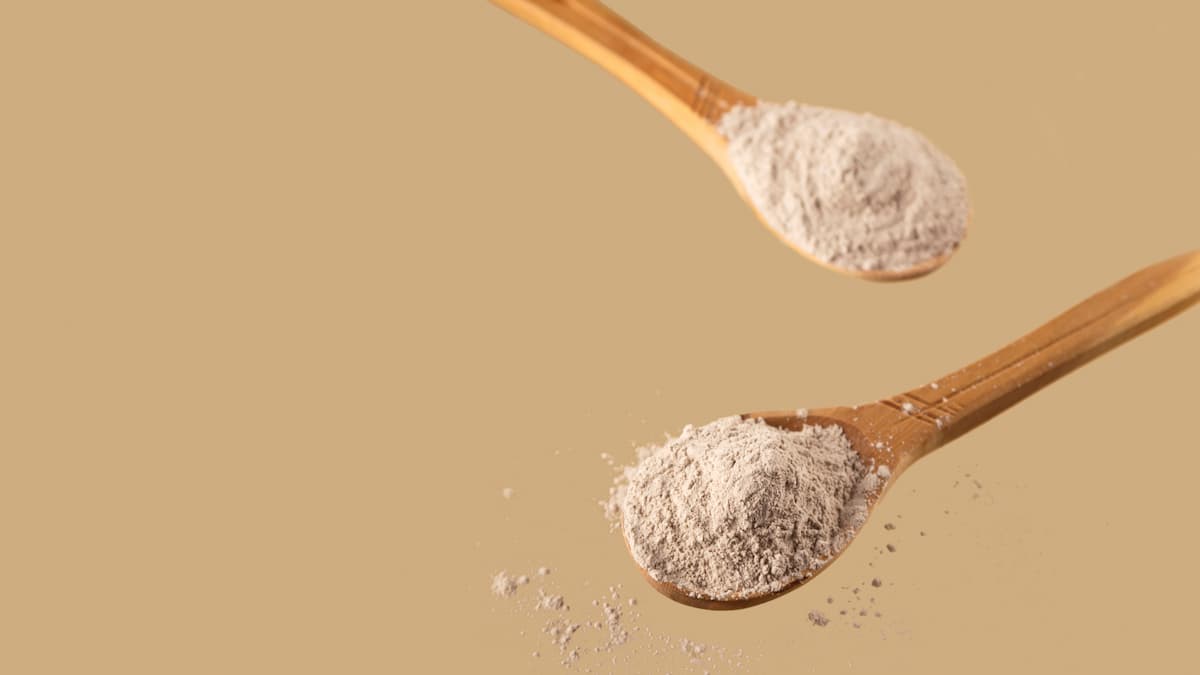
Everything you want to know about COLLinstant collagen.

Collibre collagen is an interesting supplement in shot form.
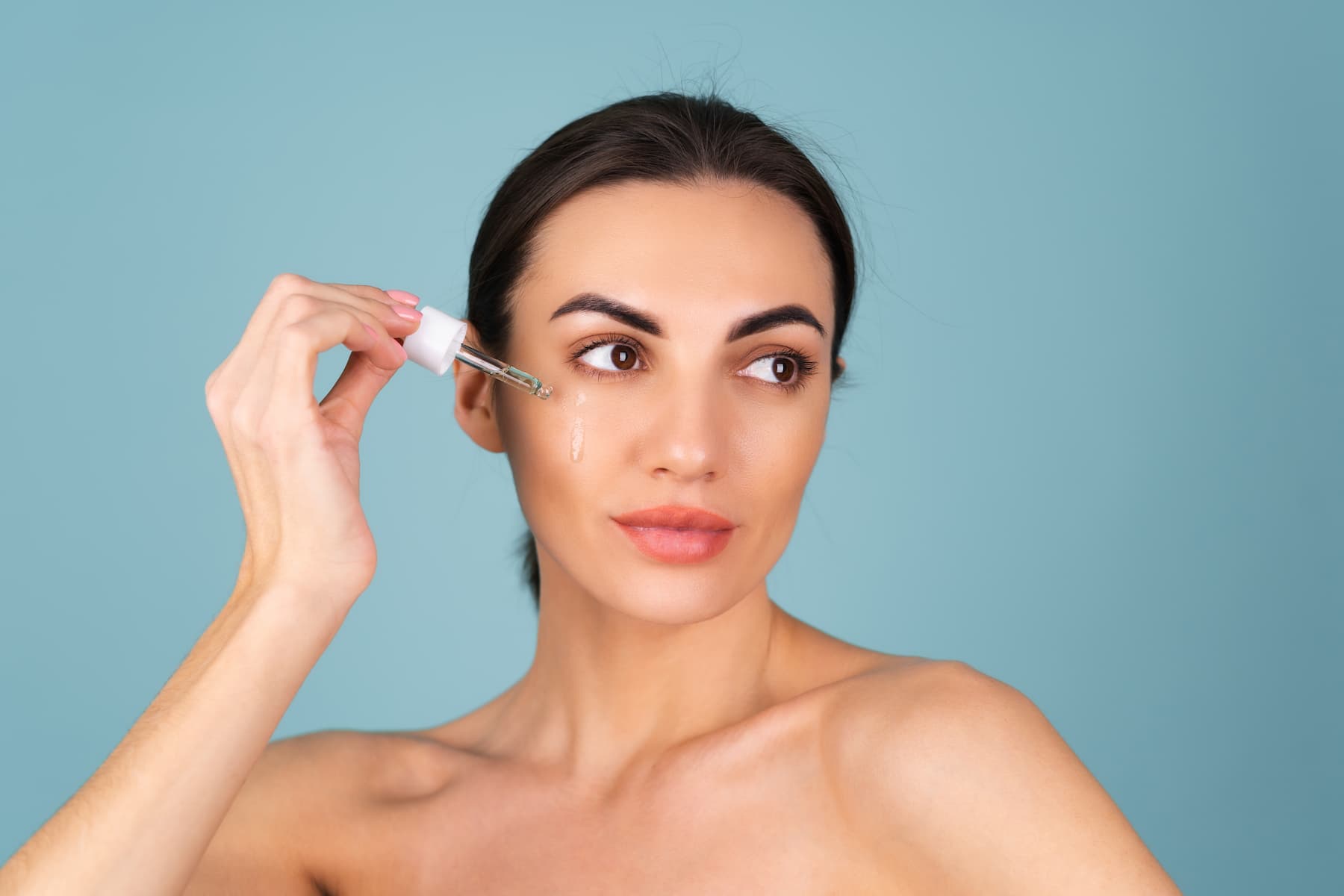
Solgar collagen with hyaluronic acid is a dietary supplement that supports skin and joint health.
